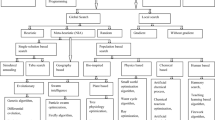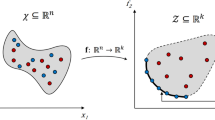Abstract
Nowadays tolerance optimization is increasingly becoming an important tool for manufacturing and mechanical design. This seemingly, arbitrary task of assigning dimension tolerance can have a large effect on the cost and performance of manufactured products. With the increase in competition in today’s market place, small savings in cost or small increase in performance may determine the success of a product. In practical applications, tolerances are most often assigned as informal compromises between functional quality and manufacturing cost. Frequently the compromise is obtained interactively by trial and error. A more scientific approach is often desirable for better performance. In this paper particle swarm optimization (PSO) is used for the optimal machining tolerance allocation of over running clutch assembly to obtain the global optimal solution. The objective is to obtain optimum tolerances of the individual components for the minimum cost of manufacturing. The result obtained by PSO is compared with the geometric programming (GP) and genetic algorithm (GA) and the performance of the result are analyzed .
Similar content being viewed by others
References
Michael W, Siddall JN (1982) The optimal tolerance assignment with less than full acceptance. ASME J Mech Des 104:855–860
Lee WJ, Woo TC (1990) Tolerances: their analysis and synthesis. J Eng Ind 112:113–121
Gadallah MH, ElMaraghy HA (1994) A new algorithm for discrete tolerance optimization. Proc Fourth International Conference on Computer Integrated Manufacturing and Automation Technology (IEEE Comput Soc Press), pp 292–297
Choi H-GR, Park M-H, Salisbury E (2000) Optimal tolerance allocation with loss functions. J Manuf Sci Eng Trans ASME 122:529–535
Cho B-R, Kim YJ, Kimbler DL, Phillips MD (2000) An integrated joint optimization procedure for robust and tolerance design. Int J Prod Res 38:2309–2325
Feng C-X, Wang J, Wang J-S (2001) An optimization model for concurrent selection of tolerances and suppliers. Comput Ind Eng 40:15–33
Kopardekar P, Anand S (1995) Tolerance allocation using neural networks. Int J Adv Manuf Technol 10:269–276
Dupinet E, Balazinski M, Czogala E (1996) Tolerance allocation based on fuzzy logic and simulated annealing. J Intell Manuf 7:487–497
Ji S, Li X, Ma Y, Cai H (2000)Optimal tolerance allocation based on fuzzy comprehensive evaluation and genetic algorithm. Int J Adv Manuf Technol 16(7):461–468
Chen T-C, Fischer GW (2000) A GA–based search method for the tolerance allocation problem . Int J Artif Intell Eng 14:133–141
Ji S, Li X, Du R (2000) Tolerance synthesis using second fuzzy comprehensive evaluation and genetic algorithm. Int J Prod Res 38(15):3471–3483
Noorul Haq A, Sivakumar K, Saravanan R, Muthiah V (2005) Tolerance design optimization machine elements using genetic algorithm. Int J Adv Manuf Technol 25:385–391
Feng C-X, Kusiak A (1997) Robust tolerance design with the integer programming approach. Journal of Manufacturing Science and Engineering: Transactions of the ASME 119:603–610
Eberhart R, Kennedy J (1995) A new optimizer using particle swarm theory. Proc Sixth International Symposium on Micro Machine and Human Science Nagoya, Japan, IEEE Service Center, Piscataway, NJ, pp 39–43
Eberhart RC, Shi Y (2000) Comparing inertia weights and constriction factors in particle swarm optimization. 2000 Congress on Evolutionary Computing 1:84–88
Author information
Authors and Affiliations
Corresponding author
Rights and permissions
About this article
Cite this article
Noorul Haq, A., Karthikeyan, K., Sivakumar, K. et al. Particle swarm optimization (PSO) algorithm for optimal machining allocation of clutch assembly. Int J Adv Manuf Technol 27, 865–869 (2006). https://doi.org/10.1007/s00170-004-2274-5
Received:
Accepted:
Published:
Issue Date:
DOI: https://doi.org/10.1007/s00170-004-2274-5




